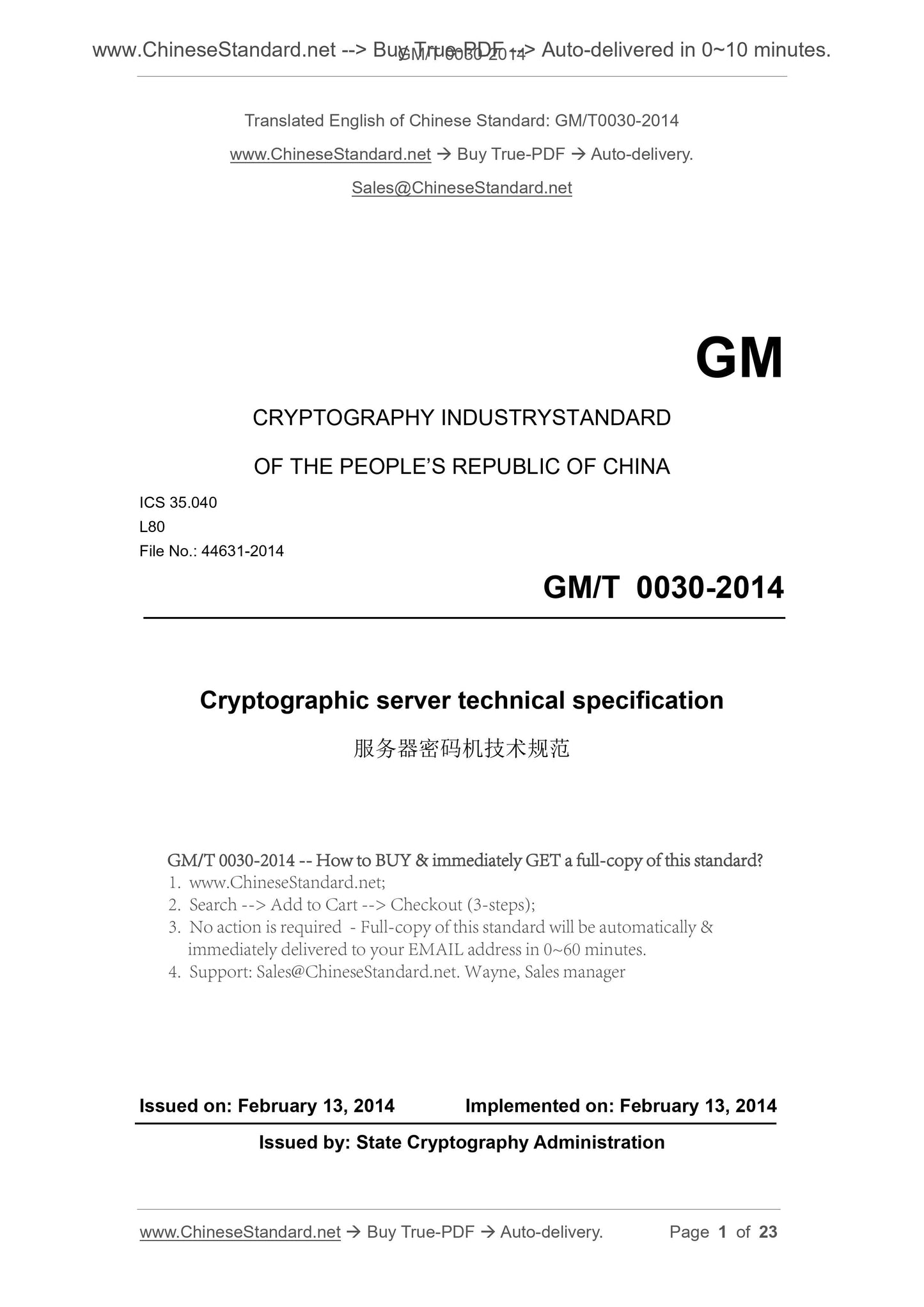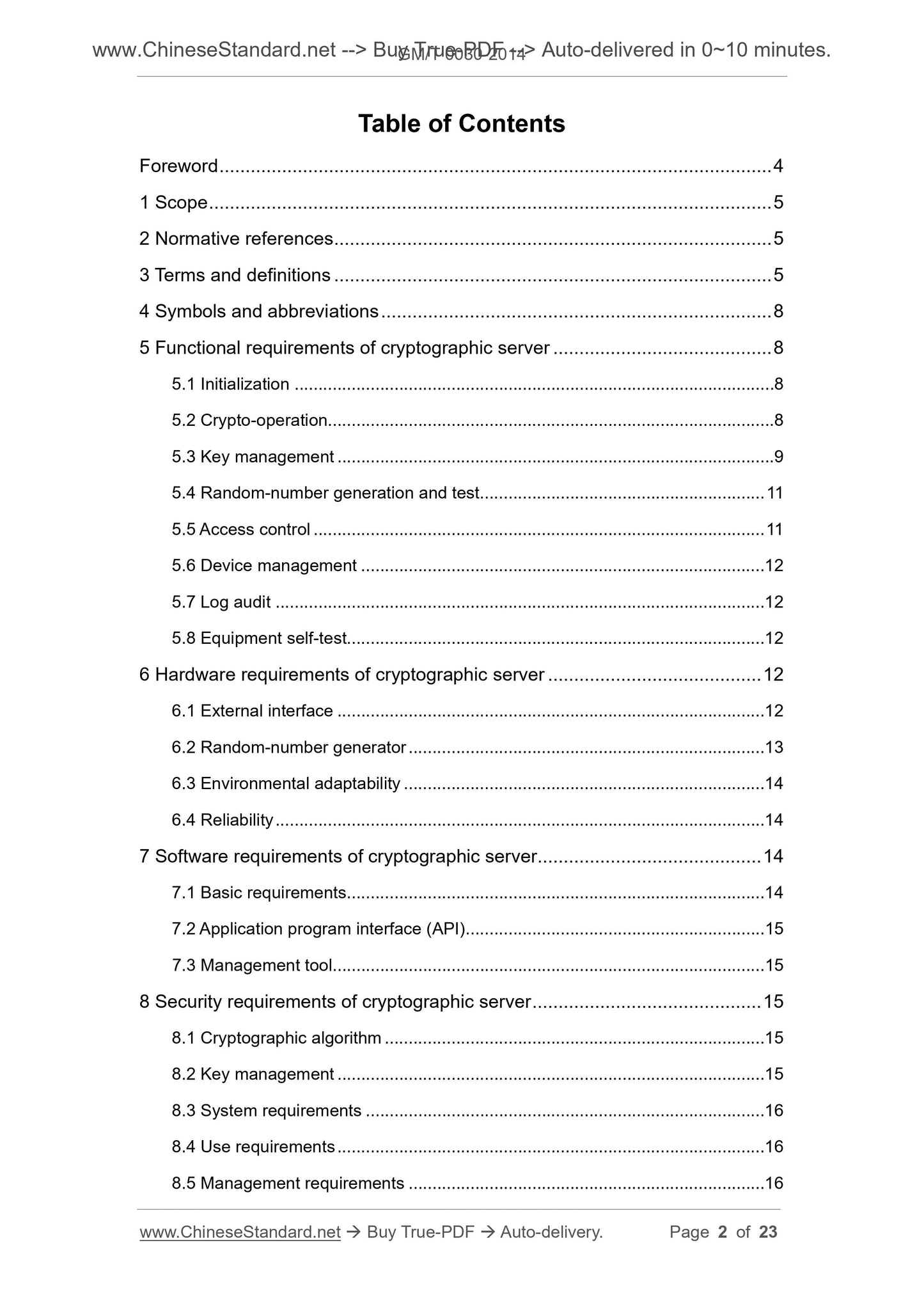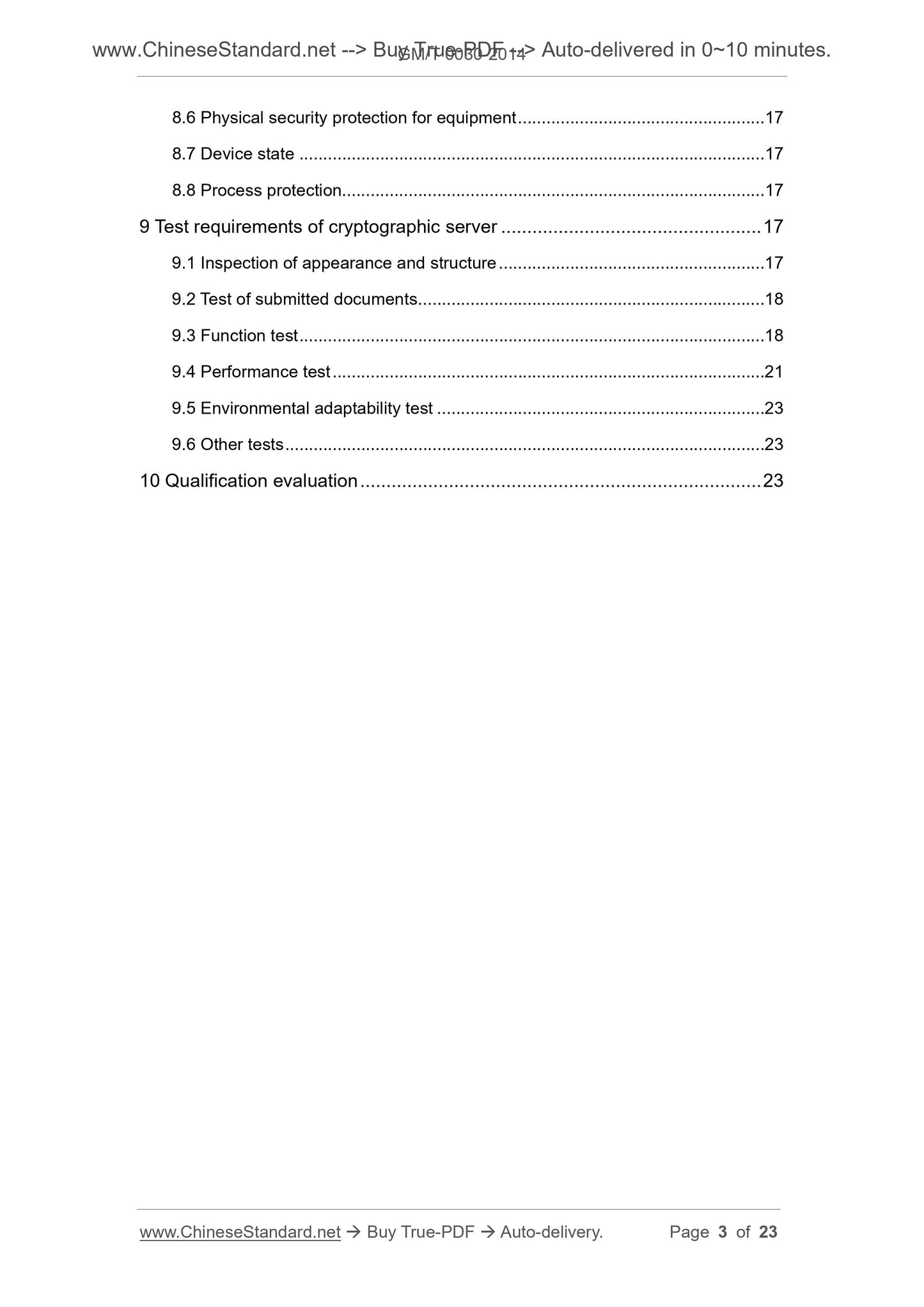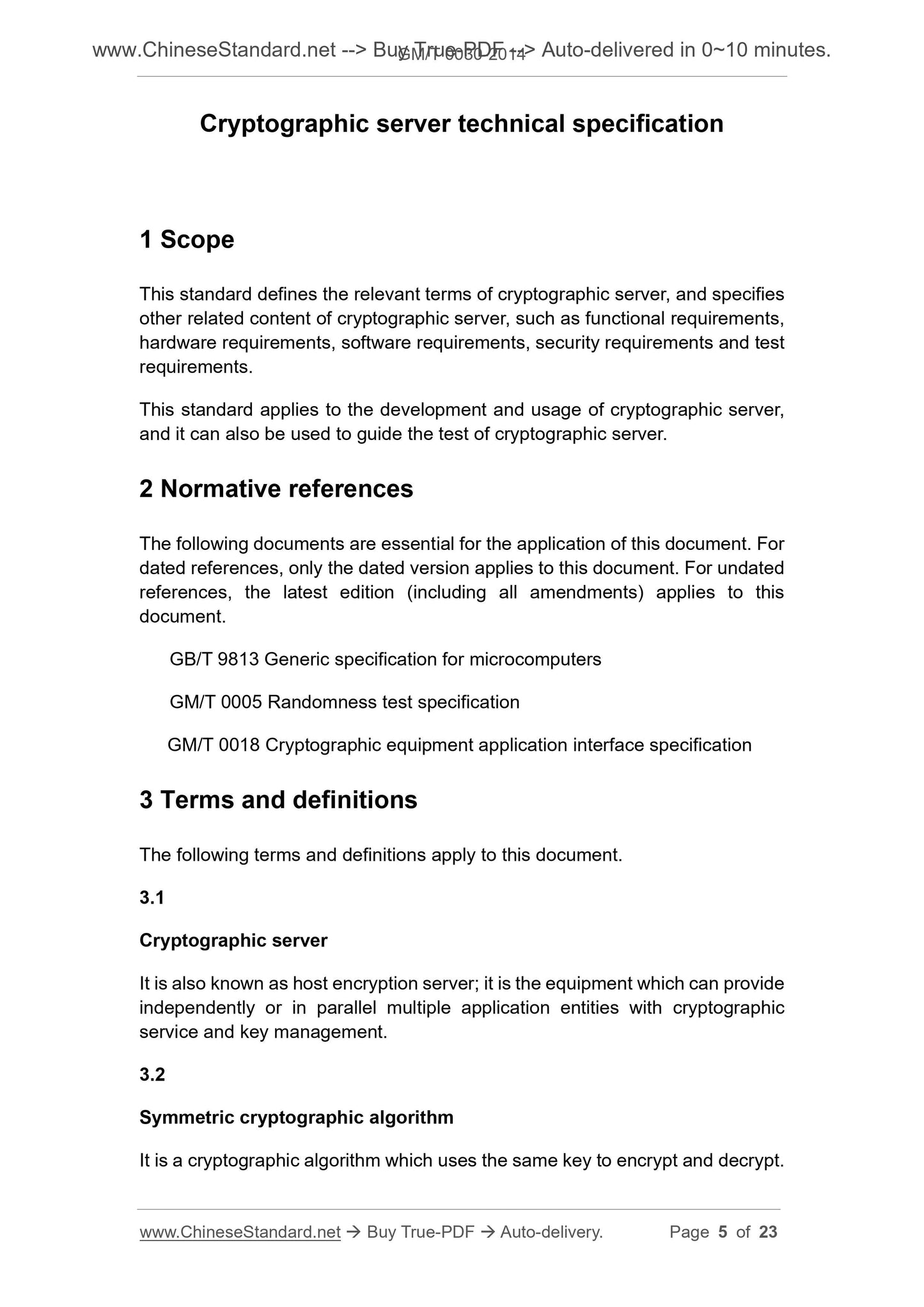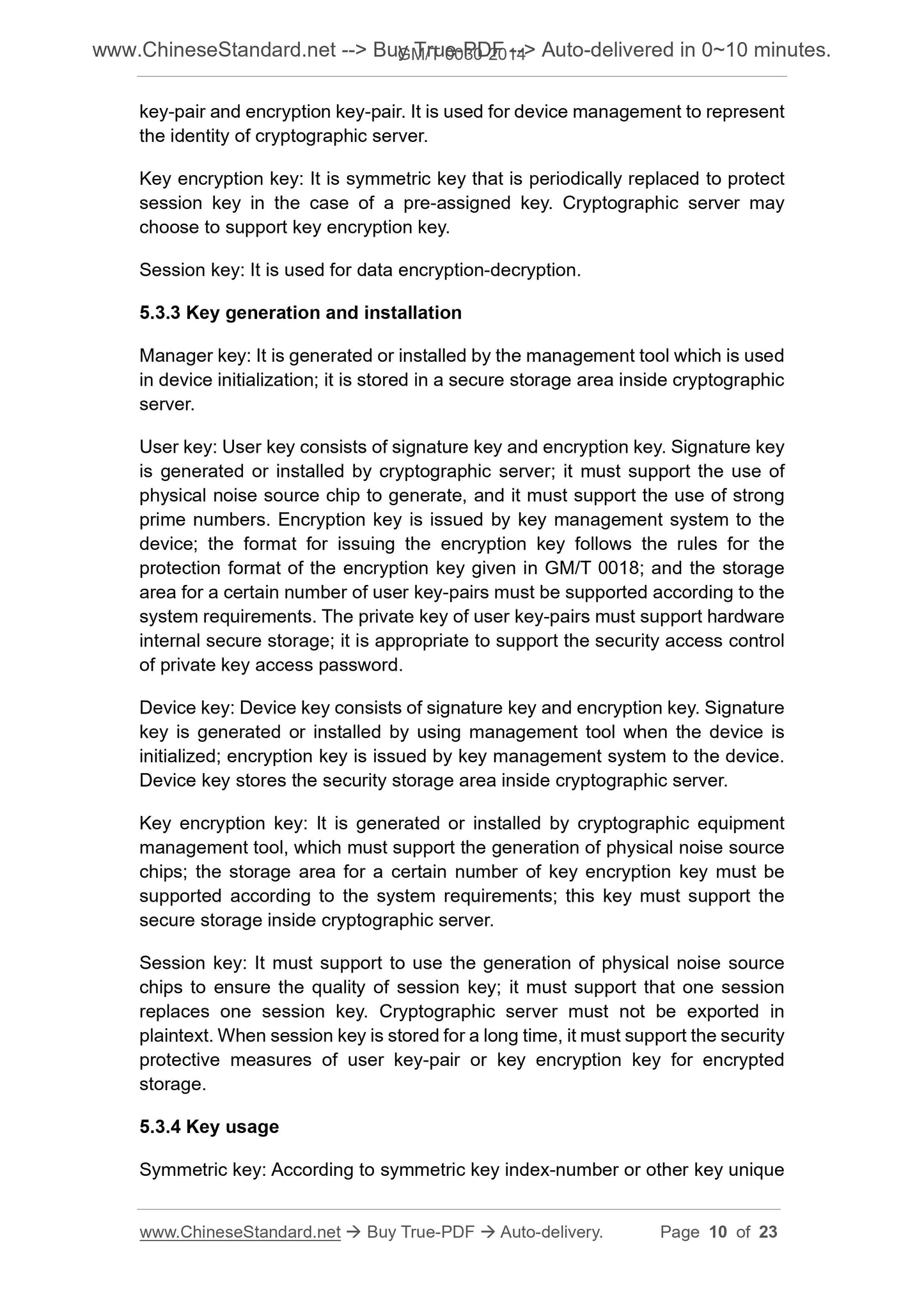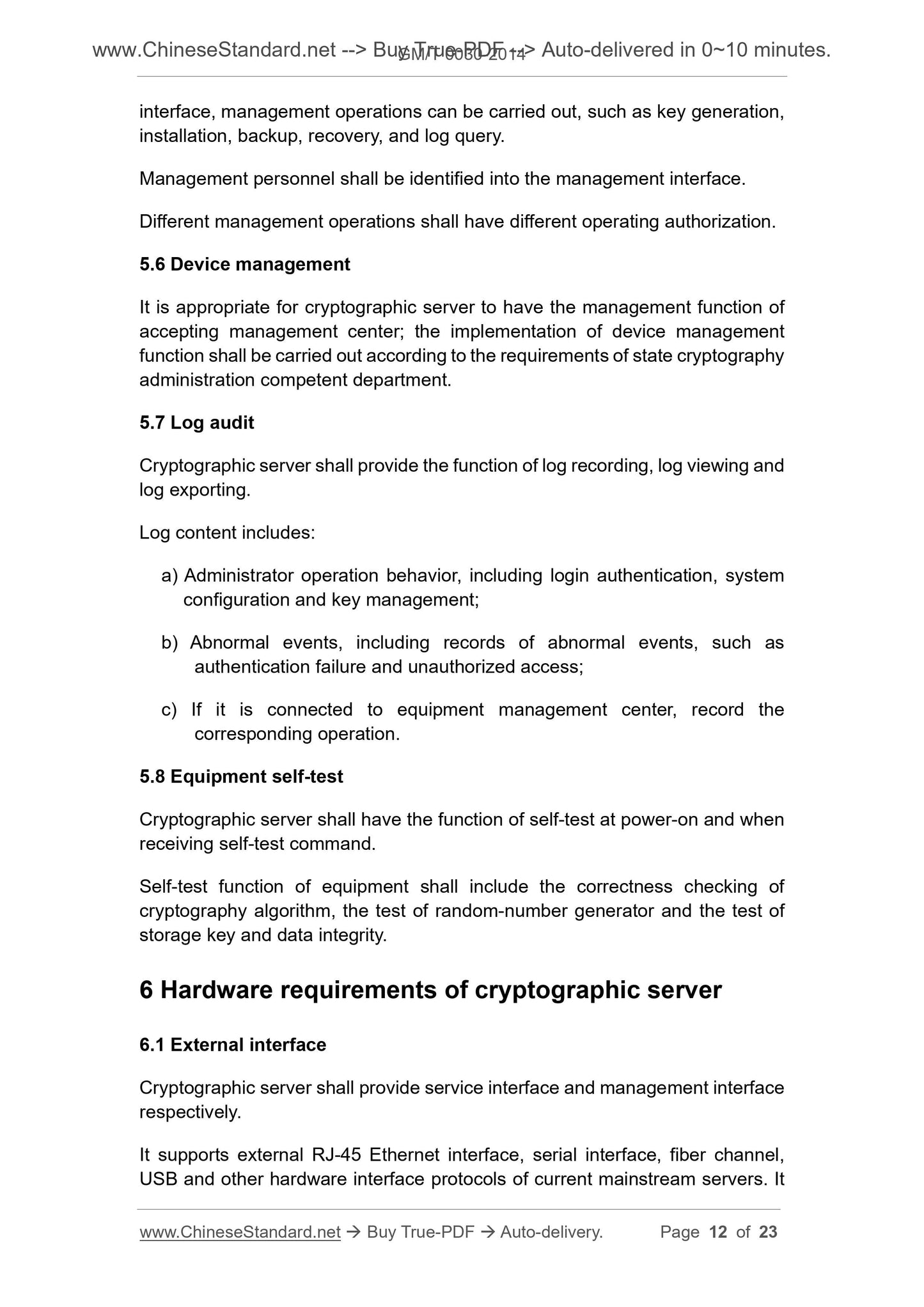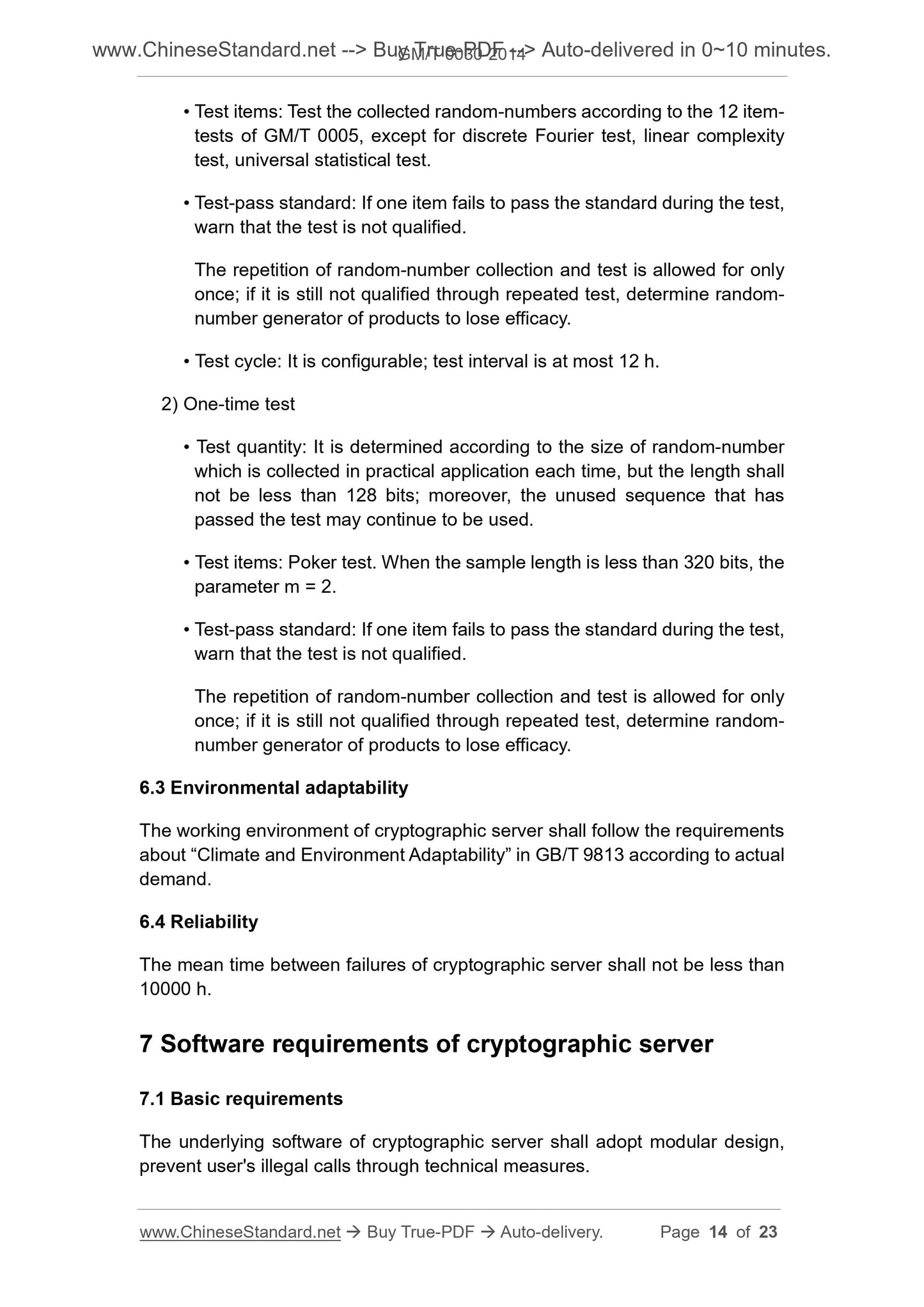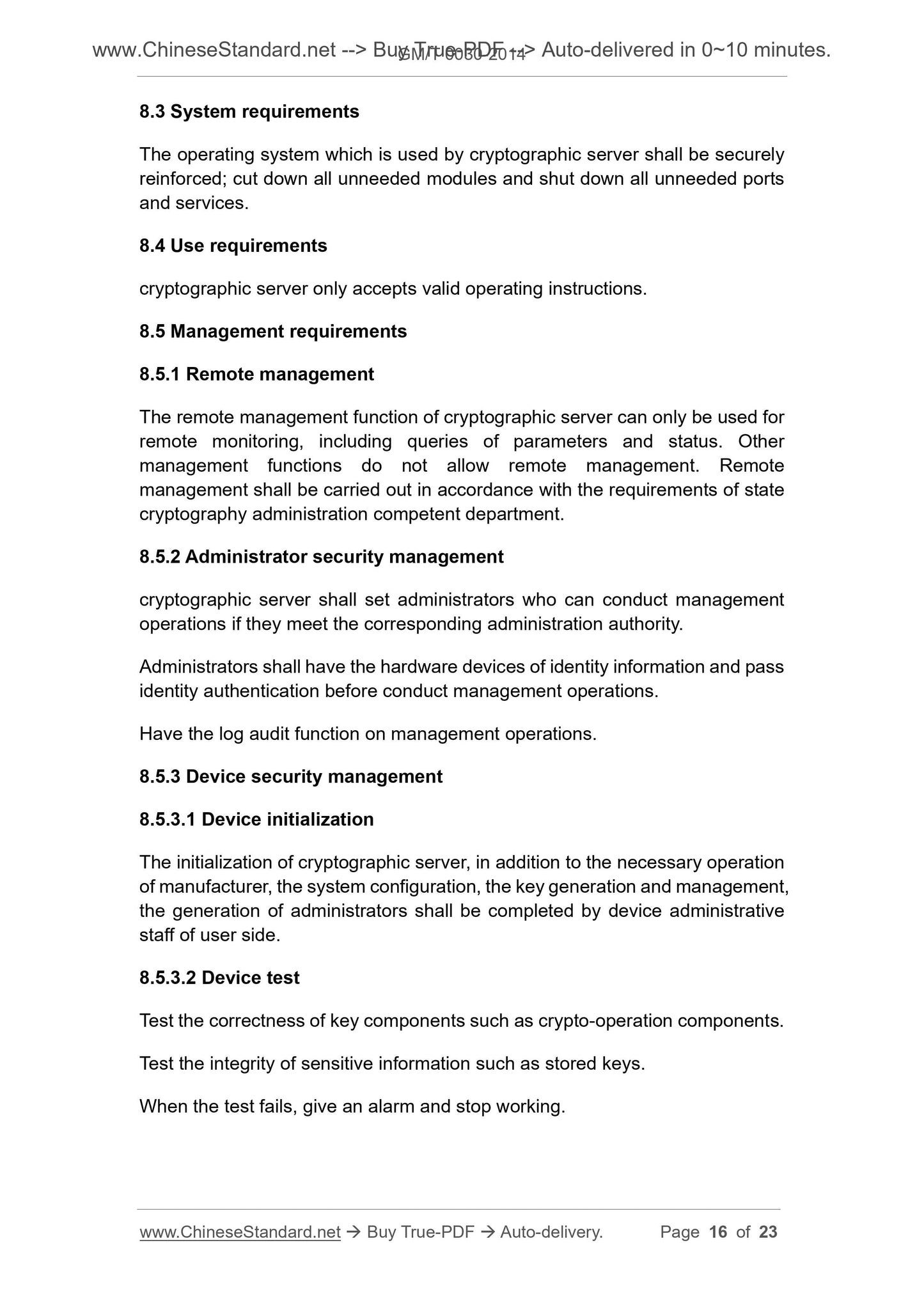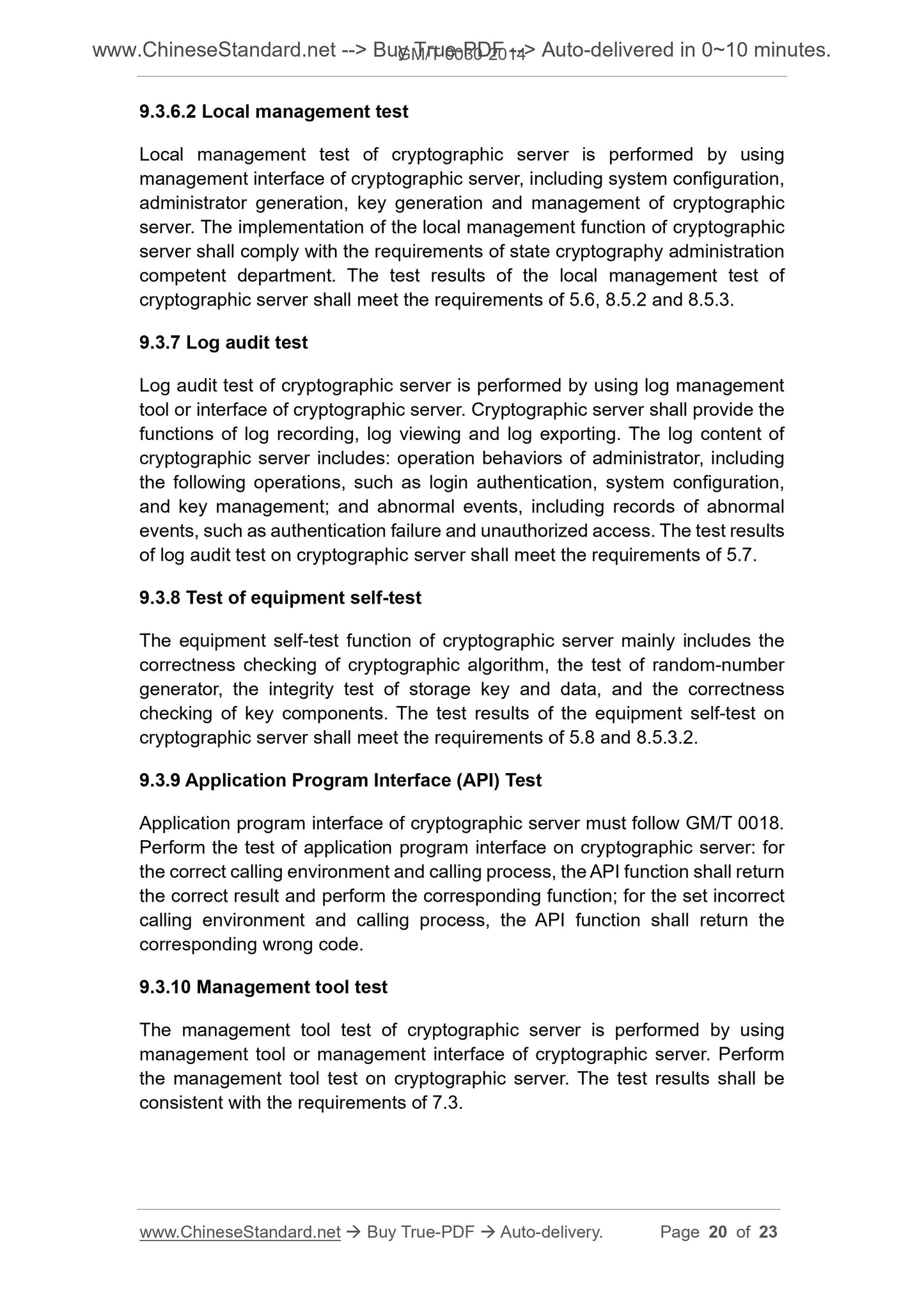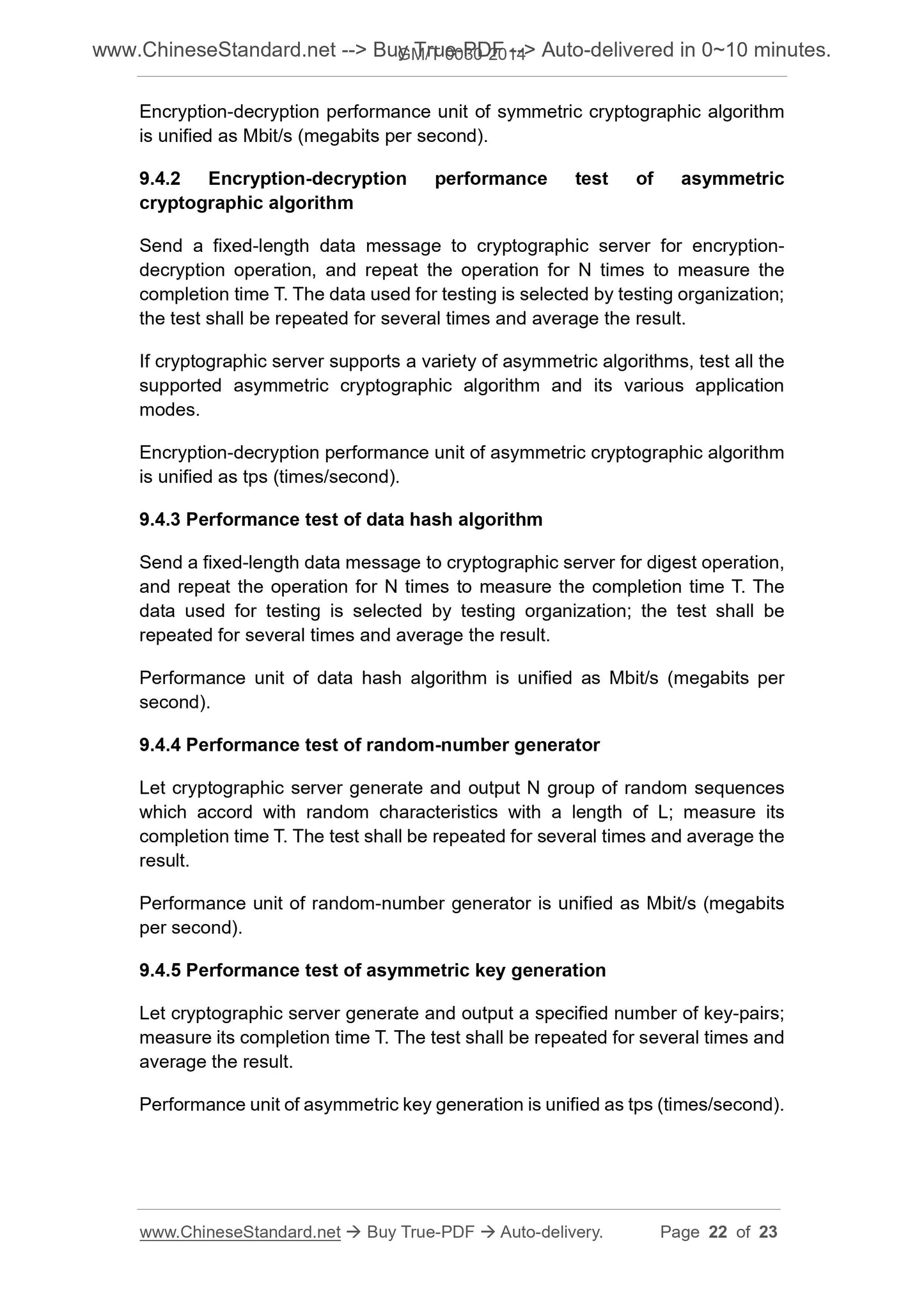1
/
of
10
www.ChineseStandard.us -- Field Test Asia Pte. Ltd.
GM/T 0030-2014 English PDF (GM/T0030-2014)
GM/T 0030-2014 English PDF (GM/T0030-2014)
Regular price
$150.00
Regular price
Sale price
$150.00
Unit price
/
per
Shipping calculated at checkout.
Couldn't load pickup availability
GM/T 0030-2014: Cryptographic server technical specification
Delivery: 9 seconds. Download (and Email) true-PDF + Invoice.Get Quotation: Click GM/T 0030-2014 (Self-service in 1-minute)
Newer / historical versions: GM/T 0030-2014
Preview True-PDF
Scope
This standard defines the relevant terms of cryptographic server, and specifiesother related content of cryptographic server, such as functional requirements,
hardware requirements, software requirements, security requirements and test
requirements.
This standard applies to the development and usage of cryptographic server,
and it can also be used to guide the test of cryptographic server.
Basic Data
| Standard ID | GM/T 0030-2014 (GM/T0030-2014) |
| Description (Translated English) | Cryptographic server technical specification |
| Sector / Industry | Chinese Industry Standard (Recommended) |
| Classification of Chinese Standard | L80 |
| Classification of International Standard | 35.040 |
| Word Count Estimation | 16,143 |
| Date of Issue | 2/13/2014 |
| Date of Implementation | 2/13/2014 |
| Quoted Standard | GM/T 9813; GM/T 0005; GM/T 0018 |
| Regulation (derived from) | The industry standard for the record Notice 2014 No. 4 (No. 172 overall) |
| Issuing agency(ies) | State Administration of Cryptography |
| Summary | This standard specifies the relevant terms server cipher machine, provides server cipher machine functional requirements, hardware requirements, software requirements, safety requirements and testing requirements and other relevant content. This standard |
Share
